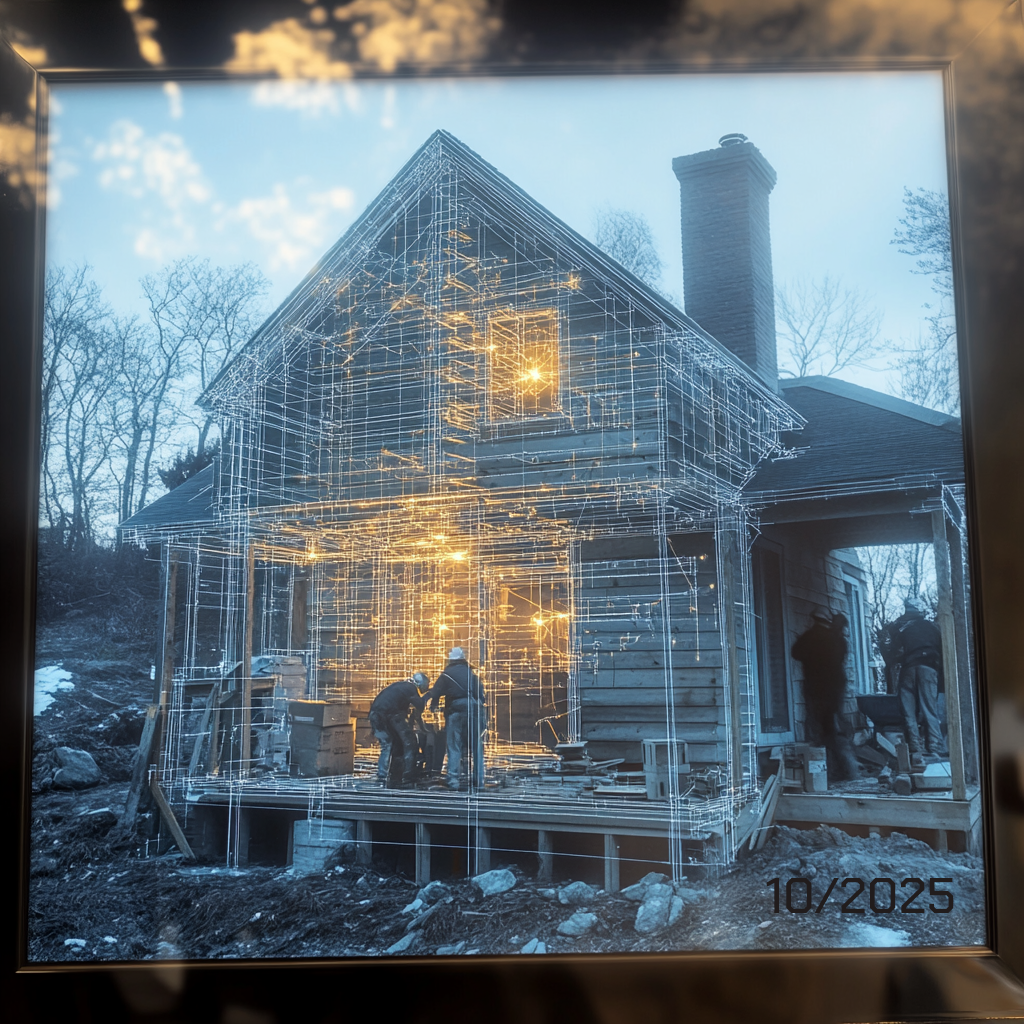
Image © Jose 2025
My world that has been substantially impacted by Artificial Intelligence in the last 2 years, particularly by Generative AI. If you take out software engineering & data analysis, Design has been one of the areas more impacted in automation (concepts, UX/UI, CAD), and productivity (more in less time and with fewer resources). While it has not been able to redefine strategic and quality design, it is expected that impact will go from low to moderate/ high in the next 3 to 5 years, so I am being flooded with conversations about this all the time.
I am doing this house renovation, and just like with cell signal in that area, I am in a ML/G.AI dead zone. Nothing. Zero impact in everything that is taking place in the renovation itself. Even in my work regarding the renovation, and though I tend to use G.AI to support tasks in my professional and personal life, regarding the house renovation, zero. I have a whiteboard where I have the entire house project because I am a visual person and it helps discuss and decide with the family, I have several files with price comparisons, I have a zillion photos, but I am using zero G.AI. On the job itself, it could be said that my 78-year-old master contractor is too old for these new technologies, but that’s condescending and his team members, all younger, some much younger, seem to be completely oblivious to anything in the ML/AI world regarding their work. They are doing the entire project by hand, using traditional tools, laboring away at their speed, the work in being impacted more by the concurrent jobs they might have, time waiting for materials and the inspection process than by anything else. In general, if I isolate the work that each specialized team does, they are fast, and the work looks good (there is always room for improvement…).
Now, in theory, master and general contractors might be impacted by AI-driven planning and scheduling, better cost and margin estimation, risk assessment, and compliance. Electricians, plumbers, and HVAC contractors might be affected by AI-driven system design, remote diagnostics, predictive maintenance, prefabrication, and modular installations. Carpenters, framers, and finish contractors could see changes due to AI-powered customization, precision cutting, prefabrication growth, and AI-driven quality control. Painters and flooring installers might deal with robotic automation, AI-assisted color matching, and new self-healing materials. A lot could happen, and some may say some of this might already be happening at a bigger scale, where projects are much more complex and architects and others are involved. But at the level of what I am looking at, at the scale of an individual residence renovation, somehow, I doubt it.
My daughter from very early stated she was not much into technology (except for gaming, of course), that she wanted to work with her hands. She is doing that in college, pursuing a BFA in ceramics, and with the exception of the theoretical work she needs to provide – where she might use a G.AI tool once in a while (so I’ve heard) – she is spending her entire time at school working with clay, glazes, kilns, hands-on and fully engaged with her entire body.
In recent years, I hear there is a notable resurgence in vocational education and technical training across the United States, reflecting a growing recognition of skilled trades’ value in the evolving job market. I wonder how they are embracing this, if they are embracing it at all. I even wonder if they need to.
Will residential house renovation and other areas where vocational and technical trainees find jobs, which today are sort of ML/G.AI dead zones, become the ultimate human zones of the future? Maybe. If everything else gets optimized and automated, what’s left? The work that can’t be rushed. The work that can’t be done in a single click.
There’s no “undo” button in ceramics. No perfect AI-generated drywall finish. No algorithm that can match the feel of a handmade object or the problem-solving instinct of my experienced contractor adjusting on the fly. If AI takes over everything else, maybe working with your hands, with real materials in the real world, becomes not just a necessity, but a luxury. And maybe, in a future where automation is everywhere, the most valuable skill of all will be knowing how to create something that no machine can.
Comments
Powered by WP LinkPress